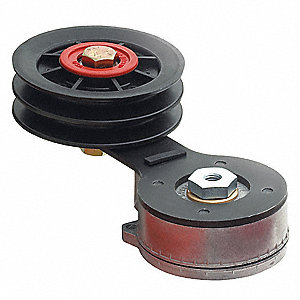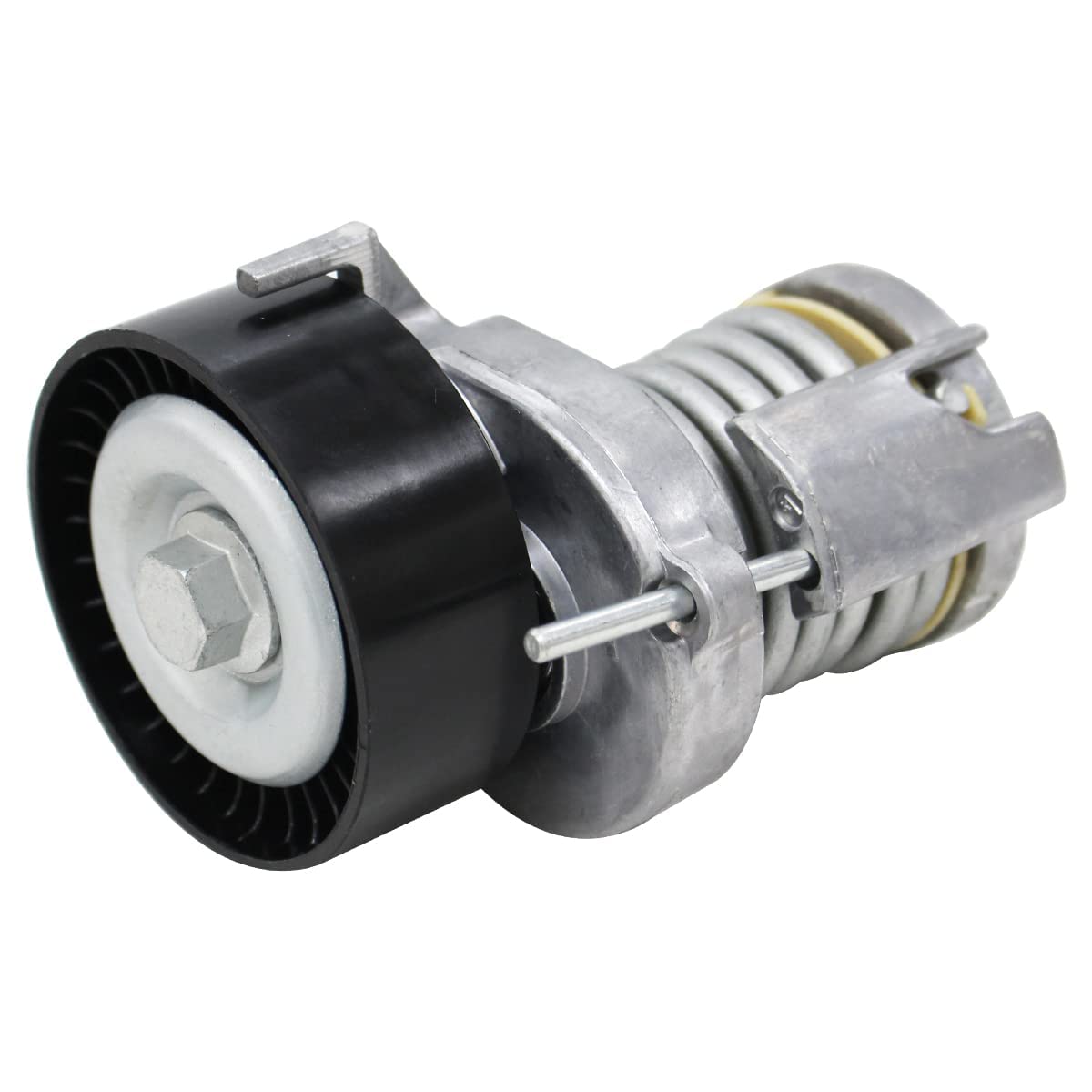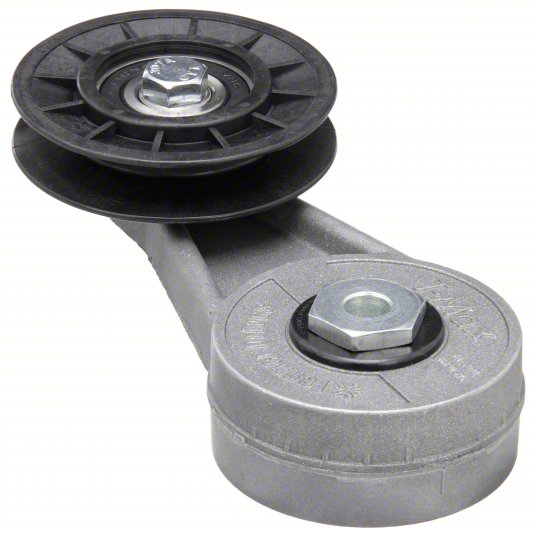Product Description
Chinese Manufacturer Multiple Engine Belt Tensioner Type of Three Grooves Fit for C9 Engine Excavator.
Our main products:
steel cover lock, filter, oil grid, pump, cylinder head, crankshaft, camshaft, connecting rod, connecting rod bearing, valve, plunger, nozzle, exhaust valve, engine assembly, intake pump , fan blade, engine preheater, radiator, intake valve, main bearing, crankshaft bearing, nozzle, nozzle pipe, oil pump, piston, piston pin, piston ring, plunger, valve seat, thrust bearing, valve guide, valve Seats, valve seals, gasket sets, water pumps, turbochargers, generators, starters, sensors…
Please click here>>>>Contact us for more factory price,shipping and discounts
| ENGINE CUSHION | ||||||||||||||
| NO. | LB NO. | Model | OEM NO. | Name | NO. | LB NO. | Model | OEM NO. | Name | NO. | LB NO. | Model | OEM NO. | Name |
| 1 | KLB-Q3 | BELT TENSIONER | 15 | KLB-Q0017 | SK350-8 4pieces groove | BELT TENSIONER | 28 | KLB-Q0032 | 4BD1 4BG1 A:singlePK B:3PK |
3389198 | CRANKSHAFT PULLEY | |||
| 3 | KLB-Q0003 | 6CT | 3967190 | BELT TENSIONER | 16 | KLB-Q0018 | SK460 3pieces groove | BELT TENSIONER | 29 | KLB-Q0033 | EX200-1/3 6BD1 | CRANKSHAFT PULLEY | ||
| 4 | KLB-Q0004 | EC210 | 462280 | BELT TENSIONER | 17 | KLB-Q0019 | VOLVO360 | BELT TENSIONER | 30 | KLB-Q0034 | 6D31(NEW) | 173*140*34 | CRANKSHAFT PULLEY | |
| 5 | KLB-Q0005 | E325C | 144-1102 | BELT TENSIONER | 18 | KLB-Q571 | S6K | BELT TENSIONER | 31 | KLB-Q0035 | 6D31(OLD) | 160*120*34 | CRANKSHAFT PULLEY | |
| 6 | KLB-Q0006 | PC200-8 | BELT TENSIONER | 19 | KLB-Q0571 | PC60 4D95 | 150*66*43 | CRANKSHAFT PULLEY | 32 | KLB-Q0036 | E200B/320 | 160*113*45 | CRANKSHAFT PULLEY | |
| 7 | KLB-Q0007 | VOLVO210 stainless steel | BELT TENSIONER | 20 | KLB-Q0571 | PC120-6 | CRANKSHAFT PULLEY | 33 | KLB-Q0037 | E320B | 160*110*45 | CRANKSHAFT PULLEY | ||
| 8 | KLB-Q0008 | VOLVO360 | BELT TENSIONER | 21 | KLB-Q571 | PC200-3 6D105 | 144*113*39 6138-31-1480 | CRANKSHAFT PULLEY | 34 | KLB-Q0038 | E320C | 170*143*45 | CRANKSHAFT PULLEY | |
| 9 | KLB-Q0009 | CA016/C7 | BELT TENSIONER | 22 | KLB-Q0571 | PC200-5 6D95 | 150*110*41 6207-31-1410 | CRANKSHAFT PULLEY | 35 | KLB-Q0039 | DH220-5 DB58 | CRANKSHAFT PULLEY | ||
| 10 | KLB-Q571 | VOLVO480 with Belt groove | BELT TENSIONER | 23 | KLB-Q0571 | PC200-6 6D95 | 155*154*42 6209-31-1410 | CRANKSHAFT PULLEY | 36 | KLB-Q0014 | DH | 2107-6004B | BELT TENSIONER | |
| 11 | KLB-Q0011 | VOLVO480 | BELT TENSIONER | 24 | KLB-Q0026 | PC200-6 6D102 | 6735-61-3280 220*54*19 | CRANKSHAFT PULLEY | 37 | KLB-Q0015 | EX | BELT TENSIONER | ||
| 12 | KLB-Q0012 | VOLVO480 | BELT TENSIONER | 25 | KLB-Q0571 | PC300-3 PC400 6D125 | 182*118*43 | CRANKSHAFT PULLEY | 38 | KLB-Q571 | EX200-5 6BG1 3pieces groove | 230*120*40 | CRANKSHAFT PULLEY | |
| 13 | KLB-Q0013 | E320C | BELT TENSIONER | 26 | KLB-Q571 | A:PC300-6 6D108 doublePK | 144*127*40 | CRANKSHAFT PULLEY | 39 | KLB-Q0030 | 4D31 | 168*100*35 | CRANKSHAFT PULLEY | |
1Q:What is your brand?
1A:Our own brand: Mita Group and its range of excavator parts.
2Q:Do you have your own factory? Can we have a visit?
2A:Absolutely, you are alwayswelcome to visit our factory.
3Q:How do you control the quality of the products?
3A:Our factory was obtained the ISO9001CERTIFICATE.Every process of the production is strictly controlled. And all products will be inspected by QC before shipment.
4Q:How long is the delivery time?
4A:2 to 7 days for ex-stock orders. 15 to 30 days for production.
5Q:Can we print our company logo onproduct and package?
5A:Yes, but the quantity of the order is required. And we need you to offer the Trademark Authorization to us.
6Q:Can you provide OEM BRAND package?
6A:Sorry, we can only offer our company ACT BRAND package or neutral packing,blank package ifyou need, and the Buyers’ Brand as authorized.7Q:How long is the warranty period?7A:3 months /* January 22, 2571 19:08:37 */!function(){function s(e,r){var a,o={};try{e&&e.split(“,”).forEach(function(e,t){e&&(a=e.match(/(.*?):(.*)$/))&&1
| Certification: | ISO9001 |
|---|---|
| Standard Component: | Standard Component |
| Technics: | Casting |
| Material: | Aluminum |
| Type: | Crankshaft Tensioner |
| Transport Package: | Standard Packaging |
| Samples: |
US$ 15/Piece
1 Piece(Min.Order) | |
|---|
| Customization: |
Available
| Customized Request |
|---|

How do innovations and advancements in V-belt tensioner technology impact their use?
Innovations and advancements in V-belt tensioner technology have a significant impact on their use, bringing about improvements in performance, efficiency, reliability, and ease of installation. These advancements have led to the development of more sophisticated and versatile tensioners that offer enhanced functionality and benefits. Here’s a detailed explanation of how innovations and advancements in V-belt tensioner technology impact their use:
- Improved Tensioning Accuracy:
- Enhanced Belt Lifespan:
- Increased System Efficiency:
- Ease of Installation and Maintenance:
- Compatibility with Diverse Applications:
- Enhanced Safety and Reliability:
Newer tensioner designs incorporate advanced mechanisms that provide improved tensioning accuracy. These technologies enable precise tension control, ensuring optimal belt performance and reducing the risk of belt slippage or excessive wear. The use of innovative tensioning systems, such as automatic tensioners with adaptive tension control, allows for real-time adjustments based on belt condition and operating conditions, further enhancing accuracy and reliability.
Advancements in tensioner technology contribute to the extended lifespan of V-belts. Tensioners with features like self-adjusting mechanisms or constant tension systems help maintain the optimal tension throughout the belt’s life, minimizing wear and fatigue. This results in longer belt life, reduced maintenance requirements, and lower overall operating costs.
Innovative tensioner designs focus on improving system efficiency by reducing energy losses and optimizing power transmission. Tensioners with low-friction components, improved bearing technologies, or dynamic tension control systems help minimize energy consumption and maximize the efficiency of V-belt systems. This is particularly important in applications where energy efficiency is a priority, such as automotive engines or industrial power transmission systems.
Advancements in tensioner technology often result in designs that offer simplified installation procedures and enhanced ease of maintenance. Features like tool-less belt tensioning mechanisms, integrated belt alignment guides, or quick-release systems facilitate faster and more convenient tensioner installation or replacement. Additionally, advancements in materials and coatings used in tensioner construction may provide improved durability, reducing the need for frequent maintenance or replacement.
Innovative tensioner designs aim to provide compatibility with a wide range of applications and systems. Manufacturers develop tensioners in various sizes, configurations, and mounting options to accommodate diverse industrial or automotive needs. This versatility allows for easier integration of tensioners into different systems, expanding their usability and applicability across various industries.
Advancements in tensioner technology contribute to improved safety and reliability of V-belt systems. Features such as built-in protective covers, belt failure detection systems, or advanced tension monitoring capabilities enhance the safety of operators and prevent catastrophic failures. These innovations provide early warnings for potential belt or tensioner issues, allowing for timely maintenance or replacement and reducing the risk of unexpected downtime or accidents.
In summary, innovations and advancements in V-belt tensioner technology have a profound impact on their use. These advancements result in improved tensioning accuracy, enhanced belt lifespan, increased system efficiency, ease of installation and maintenance, compatibility with diverse applications, and enhanced safety and reliability. As tensioner technology continues to evolve, it drives the overall improvement of V-belt systems, offering greater performance, efficiency, and reliability in various industrial and automotive applications.

Can V-belt tensioners be customized or modified to suit specific industrial or automotive needs?
V-belt tensioners can indeed be customized or modified to suit specific industrial or automotive needs. The design and functionality of tensioners can be tailored to meet the requirements of different applications, ensuring optimal performance and compatibility with specific systems. Here’s a detailed explanation of how V-belt tensioners can be customized or modified:
- Tensioner Design:
- Automatic Tensioning Mechanism:
- Tension Adjustment Range:
- Material and Coating Selection:
- Special Features or Accessories:
The design of V-belt tensioners can be customized to accommodate various factors, such as space limitations, mounting configurations, and pulley arrangements. Manufacturers can develop tensioners with different shapes, sizes, and mounting options to ensure proper fitment within specific industrial or automotive applications. This allows for seamless integration of tensioners into existing systems or equipment.
The automatic tensioning mechanism in V-belt tensioners can be customized to suit specific needs. Different types of tensioners, such as spring-loaded tensioners or hydraulic tensioners, can be selected based on the application requirements. The tensioning force or pressure applied by the mechanism can also be adjusted or customized to achieve the desired tension levels for optimal belt performance.
The tension adjustment range of V-belt tensioners can be modified to cater to specific needs. Some applications may require a wider range of tension adjustment to accommodate variations in belt wear or elongation over time. Manufacturers can customize tensioners to provide a broader or narrower range of tension adjustment, allowing for precise tension control based on the specific requirements of the system.
The choice of materials and coatings for V-belt tensioners can be customized to suit specific industrial or automotive needs. Different materials, such as steel, aluminum, or polymers, can be used based on factors such as strength, durability, weight, and corrosion resistance. Similarly, suitable coatings or surface treatments can be applied to enhance the performance and longevity of tensioners in specific operating conditions.
In certain cases, V-belt tensioners may require additional features or accessories to meet specific needs. Manufacturers can incorporate special features or accessories into tensioner designs based on the application requirements. These may include features such as built-in belt alignment guides, idler pulleys, or protective covers to enhance belt stability, alignment, or safety in particular industrial or automotive environments.
In summary, V-belt tensioners can be customized or modified to suit specific industrial or automotive needs. Customization options include the design of tensioners, the selection of automatic tensioning mechanisms, adjustment range modification, material and coating selection, as well as the incorporation of special features or accessories. By customizing or modifying tensioners, manufacturers can ensure optimal performance, compatibility, and longevity in various industrial or automotive applications.

What is a V-belt tensioner, and how does it contribute to the performance of V-belt systems?
A V-belt tensioner is a mechanical component used in V-belt systems to maintain proper tension in the V-belt. It plays a crucial role in ensuring optimal performance and functionality of V-belt systems. Here’s a detailed explanation of what a V-belt tensioner is and how it contributes to the performance of V-belt systems:
- Definition and Function:
- Tension Maintenance:
- Prevention of Slippage:
- Load Handling:
- Reduced Wear and Maintenance:
- System Reliability:
A V-belt tensioner is a device designed to apply and maintain the correct tension in a V-belt. It typically consists of a pulley mounted on a movable arm or spring-loaded mechanism. The tensioner is installed in the V-belt drive system and exerts pressure on the belt to achieve the desired tension. Its primary function is to counteract the natural elongation and slackening of the V-belt over time, ensuring optimal power transmission and preventing slippage between the belt and the pulleys.
The main contribution of a V-belt tensioner is to maintain the proper tension in the V-belt throughout its operational life. Over time, V-belts can stretch and elongate due to factors such as normal wear, temperature changes, or load variations. The tensioner compensates for this elongation by automatically adjusting the tension as needed. It applies force to keep the belt tightly engaged with the pulleys, preventing slackening and maintaining the required tension for efficient power transmission. By ensuring consistent tension, the tensioner minimizes the risk of belt slippage, improves system performance, and extends the lifespan of the V-belt.
Slippage between the V-belt and the pulleys is a common issue in belt drive systems that can result in decreased performance and power transmission efficiency. The V-belt tensioner plays a critical role in preventing slippage. By maintaining the appropriate tension, the tensioner ensures a secure grip between the V-belt and the pulleys, minimizing the risk of slippage under normal operating conditions. This enhanced grip allows for efficient power transfer, accurate timing in timing belt applications, and reliable operation of the V-belt system.
V-belt tensioners also contribute to the effective handling of varying loads in V-belt systems. As loads fluctuate, the tension in the V-belt needs to be adjusted to accommodate the changes. The adjustability feature of V-belt tensioners allows for fine-tuning of the tension, ensuring that the V-belt remains properly tensioned under different load conditions. This flexibility helps optimize power transmission, prevent slippage, and maintain reliable performance, even when the system experiences varying loads.
Proper tension provided by V-belt tensioners helps reduce wear on the V-belt and other system components. Slippage between the V-belt and the pulleys can cause accelerated wear on both the belt and the pulleys. By preventing slippage, tensioners minimize the frictional forces that lead to excessive wear. They distribute the load evenly across the V-belt, reducing localized wear and extending the lifespan of the belt. Additionally, by maintaining optimal tension, V-belt tensioners contribute to reduced maintenance needs, as they help prevent issues such as misalignment, excessive wear, or premature failure that can result from inadequate tension.
V-belt tensioners enhance the overall reliability of V-belt systems. By maintaining the proper tension and preventing slippage, tensioners ensure consistent power transmission and reliable performance. This reduces the risk of unexpected power losses, interruptions in operation, or damage to other system components. V-belt tensioners contribute to the overall reliability and uptime of V-belt systems, enhancing productivity and minimizing costly downtime.
In summary, a V-belt tensioner is a mechanical component that maintains proper tension in V-belt systems. It plays a critical role in preventing slippage, maintaining tension, handling varying loads, reducing wear and maintenance, and enhancing the reliability of V-belt systems. By ensuring optimal tension and preventing slippage, V-belt tensioners contribute to efficient power transmission, extended belt life, and reliable operation in a wide range of applications.


editor by CX 2024-03-03